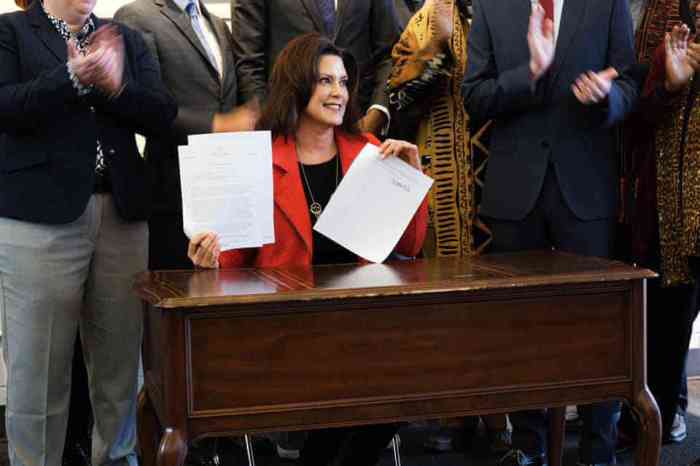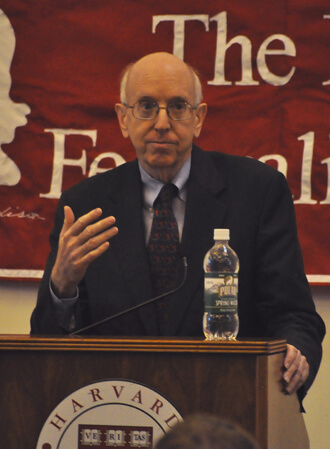Lambda Legal’s federal lawsuit seeking to compel Wisconsin officials to issue appropriate birth certificates for children of married same-sex couples hit a speed bump on December 16 when US District Judge Barbara B. Crabb denied its motion for class certification and summary judgment.
Lambda sued on behalf of plaintiffs Chelsea Torres and Jessamy Torres and their minor child, A.T. The child was born through donor insemination performed in compliance with Wisconsin law and the women were legally married before A.T. was born, but state officials refused to issue a birth certificate listing both women as mothers of A.T., asserting that the non-birth mother would have to go through an adoption proceeding to get her name on an amended birth certificate.
Under Wisconsin statutes a birth certificate lists the woman who gave birth to the child and her legal husband, even if the child was conceived through donor insemination, so long as the procedure was carried out consistent with state law, supervised by a licensed physician, and approved of in writing by the husband. If the husband does not give written consent or the insemination is not carried out in compliance with Wisconsin law, he is not listed on the birth certificate.
Federal judge finds faults in effort to establish “parental presumption” for all lesbian couples having children
Chelsea and Jessamy Torres complied with the statute, having a doctor supervise the insemination procedure, the non-birth spouse giving written consent, and the sperm donor waiving all claim to parental rights.
The motion seeking class certification proposed a class consisting of “all same-sex couples who legally married in Wisconsin or in another jurisdiction, at least one member of whom gave birth to a child or children in Wisconsin on or after June 6, 2014, and who request birth certificates for such children listing both spouses as parents, regardless of whether they have already received birth certificates listing only one spouse as a parent; and all children born to such couples on or after June 6, 2014.”
That date is when Judge Crabb declared Wisconsin’s ban on same-sex marriage unconstitutional.
Lambda’s effort to certify a class would extend the parental presumption typically afforded husbands to lesbian spouses, as well. (The provision that “at least one member” of the couple “gave birth to a child” would by definition exclude gay male couples from this class.) So far, the legal group is unwilling to grab a victory just for the plaintiff couple who are in court.
Wisconsin Department of Health Services Secretary Kitty Rhoades opposed the proposed class by arguing that the Torres couple and their child could not properly represent the interests of all proposed class members, since the class as described would take in people who conceived their children in different ways and so present different issues regarding entitlement to placing a parent’s name on a birth certificate.
Rhoades pointed out that women can become pregnant in at least three ways relevant to the issues before the court, including donor insemination that does not comply with the statute and having sex with a man to whom she presumably was not married. Claims made by families who fell into those two categories would present different issues than the 14th Amendment due process and equal protection arguments Lambda made on behalf of the Torres family, the health secretary asserted.
Judge Crabb agreed with Rhoades that “subclasses” would be needed and new plaintiffs would have to be joined to represent them in order to give the court jurisdiction to deal with the birth certificate issues that would be raised under those circumstances.
In the Torres case before Crabb, while the state is essentially conceding that after the US Supreme Court’s marriage equality ruling it doesn’t have a good defense to the claims of married same-sex couples who complied with the donor insemination statute, it could oppose the claims of those who didn’t comply with the statute or in cases where a woman conceived through sex with a man.
Crabb agreed with Lambda that the claims regarding birth certificates would be appropriate for class treatment, but not as broad a class as described in its motion. In light of her decision that the proposed class could not be certified, the judge held that it would be premature to grant Lambda’s motion for summary judgment. She pointed out that the state has conceded that the first subclass of same-sex couples who followed the requirements of the donor insemination statute should be entitled to get both names on the birth certificate without the non-birth mother going through an adoption –– and had offered to amend the birth certificates in such cases –– but the plaintiffs declined the offer in order to maintain Lambda’s class action.
Crabb also found that Lambda’s request for a declaration that various Wisconsin statutes unconstitutionally discriminate against same-sex married couples seemed overbroad in light of the issues the Torres family was bringing before the court. Lambda was attacking not only the birth certificate statute and the donor insemination statute, but also the paternal presumption statute –– under which “a man is presumed to be the natural father of a child” who is born to his wife –– for failing to address the legal status of the non-birth parent in a same-sex married couple.
Crabb commented, “Plaintiffs do not explain how that presumption relates to birth certificates, which is the only issue plaintiffs raise in this case.” She pointed out that the paternal presumption statute “seems to involve issues that arise later,” such as obligations for child support or inheritance rights. The Torres family, she wrote, makes no allegations “showing how they are being injured by [the paternal presumption statute], which raises the question whether they have standing to challenge that statute… If plaintiffs plan to continue to seek a ruling regarding the constitutionality of [the paternal presumption statute], they will have to show that one or more plaintiffs meet all the requirements for standing.”
The judge gave Lambda until February 1to file a new class certification motion. The legal group will have to either narrow its proposed class to same-sex married couples who complied with the donor insemination statute or recruit additional plaintiffs and seek certification of other subclasses. To challenge the paternal presumption statute, Lambda will need to recruit plaintiffs who can show some sort of concrete harm due to the failure of that statute to take on a gender-neutral parental presumption approach that would apply to same-sex couples.
Counsel for plaintiffs include Camilla Taylor, Christopher Clark, and Kyle Palazzolo from Lambda’s Chicago office, and local counsel Clearesia Lovell-Lepak and Tamara Beth Packard, both of Madison.

































